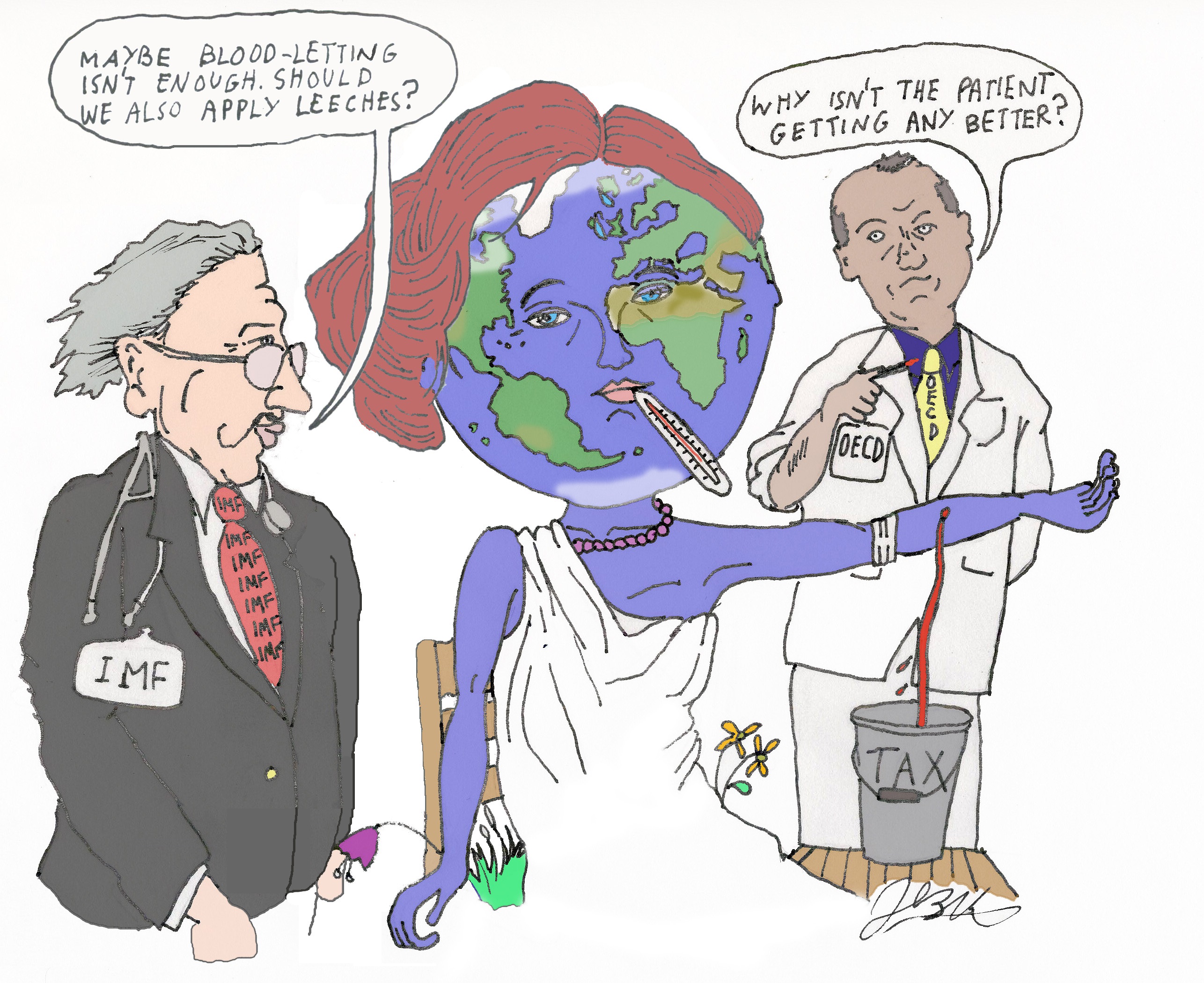By providing bailouts to profligate governments, the International Monetary Fund creates “moral hazard” and thus does considerable damage to the global economy.
 To make matters worse, the IMF pressures those profligate governments to raise taxes in exchange for bailout cash.
To make matters worse, the IMF pressures those profligate governments to raise taxes in exchange for bailout cash.
Then, to add insult to injury, the IMF pushes for higher taxes even when countries don’t need bailouts.
The IMF repeatedly has urged higher taxes in the United States. And now the bureaucrats are pushing for higher taxes in the United Kingdom.
In an article for the BBC, Faisal Islam and Jonathan Josephs describe the IMF’s assertions and the British government’s response.
The International Monetary Fund (IMF) has “advised the UK against further tax cuts”… It said preserving public services and investment implied higher spending than was reflected in the government’s current plans. The IMF suggested the Treasury’s pencilled-in spending cuts from this year were unrealistic.
…Commenting on the IMF’s advice, Mr Hunt said: “The IMF expect growth to strengthen over the next few years, supported by our introduction of the biggest capital investment tax reliefs anywhere in the world, alongside National Insurance cuts to improve work incentives. “It is too early to know whether further reductions in tax will be affordable in the Budget, but we continue to believe that smart tax reductions can make a big difference in boosting growth.”
I have two reactions.
- First, the United Kingdom is in trouble because of excessive spending and it is (predictably) disappointing that the IMF actually wants an even bigger burden of government financed by even higher taxes.
- Second, I have zero sympathy for the U.K.’s supposedly conservative government, which is only contemplating tax cuts as an election-year stunt in hopes voters will forget its track record of bad fiscal policy.
Indeed, a squabble between the IMF and the current British government reminds me of the fight more than 10 years ago between the IMF and the European Commission. The best that can be hoped for is plenty of casualties on both sides.
P.S. I can’t resist sharing one additional excerpt.
…economic forecasters are not always right when it comes to predicting the future. The IMF has previously stated its forecasts for most advanced economies, such as the UK’s, have more often than not been within about 1.5 percentage points of what actually happens.
As a general rule, economists are lousy forecasters. But IMF economists seem to be the worst of the worst.
No comments:
Post a Comment